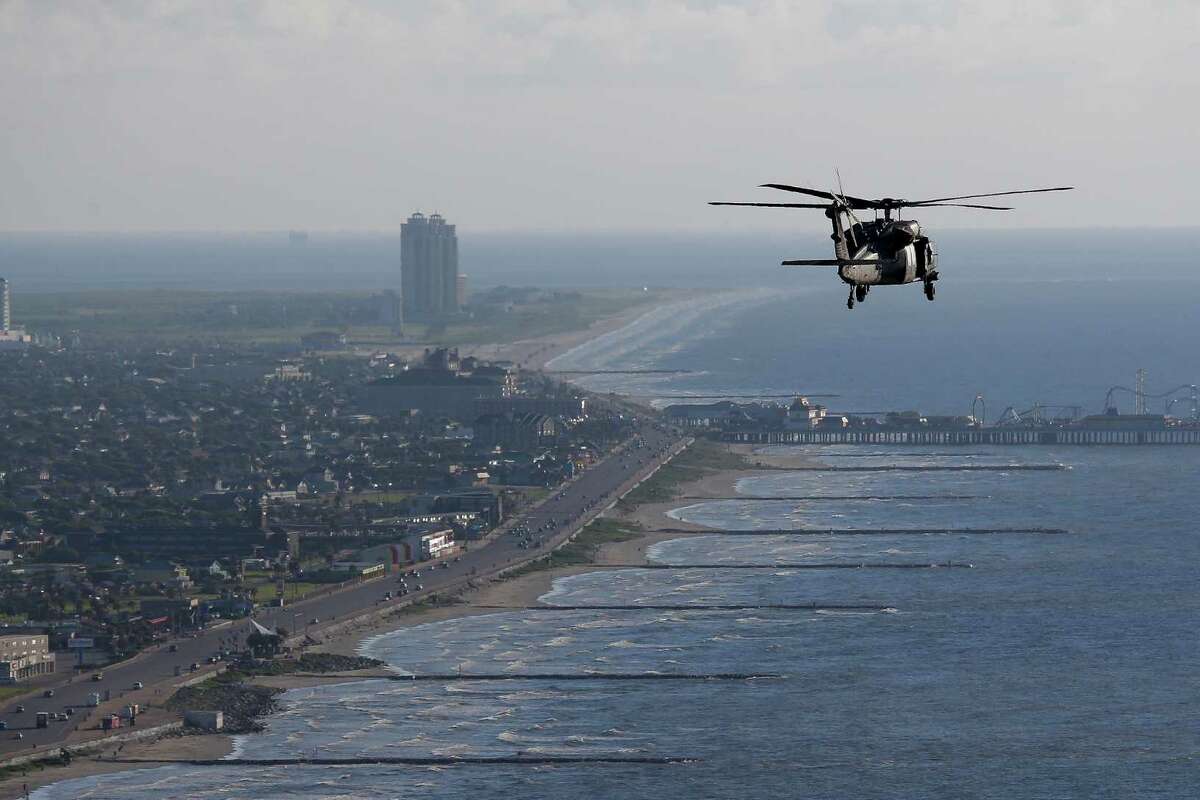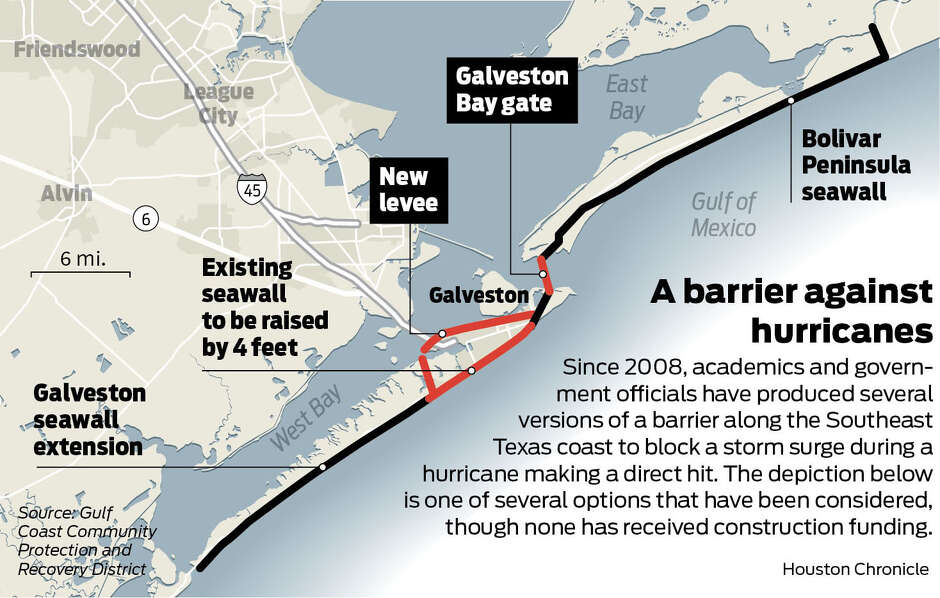|
Secretaris-Generaal VN
Geregistreerd: 18 mei 2005
Locatie: Limburg
Berichten: 50.228
|
 Olie-industrie wil kustbarrière in Texas tegen klimaatverandering...
Olie-industrie wil kustbarrière in Texas tegen klimaatverandering...
Tja, money rules zeker? Cynisch?
Waarom bouwen ze die niet zelf van hun winsten? (schrik van hun aandeelhouders...)
Citaat:
Olie-industrie wil kustbarrière in Texas tegen klimaatverandering
24/08/18 om 16:24 - Bijgewerkt om 16:28
Bron: Ap
De petroleumindustrie, een van de grote verantwoordelijken voor de wereldwijde klimaatverandering, vraagt nu zelf aan de Amerikaanse overheid om beschermd te worden tegen de opwarming van de aarde.
Komt er dan toch een gigantische muur in de Verenigde Staten? De grote oliebedrijven vragen de Amerikaanse overheid een bijna 100 km lang netwerk van barrières volledig te financieren met belastinggeld aan de Golf van Mexico in Texas, van de grens met de staat Louisiana tot het zuiden van de stad Houston.
De 'kustmuur' moet de Texaanse kuststeden , belangrijke infrastructuur en delicate ecosystemen beschermen tegen de verwoestende kracht van orkanen, een gevolg van de klimaatverandering. Toevallig bevinden zich in het gebied ook de kroonjuwelen van de petroleumindustrie die een van 's werelds grootste concentraties van oliebedrijven vertegenwoordigen.
De kostprijs van de maritieme bescherming bedraagt minstens 12 miljard dollar. Eerder maakte de overheid al 3,9 miljard dollar vrij voor drie aparte, kleinere stormbarrières die enkele specifieke olieraffinaderijen in Port Arthur en in Freeport moeten beschermen.
Cynisch
Het idee voor de 'Ike-dijk', zoals het infrastructuurproject wordt genoemd, ontstond nadat er na de doortocht van orkaan Ike in Texas in 2008 grote hoeveelheden ruwe olie in de Texaanse wateren stroomden. Vorig jaar in augustus zette orkaan Harvey nog een kwart van de olieraffinaderijcapaciteit in het gebied tijdelijk op non-actief wat de gemiddelde benzineprijs in heel het land de hoogte injoeg.
Twee Republikeinse Senatoren, John Cormyn en Ted Cruz, die president Donald Trump eerder opriepen om uit het Klimaatakkoord van Parijs te stappen, steunen het initiatief van de olie-industrie. Het voorstel wordt echter op nogal wat cynisme onthaald bij milieuactivisten. Volgens het Amerikaanse Environmental Protection Agency bestaat immers zowat 65 procent van de wereldwijde uitstoot van broeikasgassen uit CO2 uit fossiele brandstoffen en de industrie.
https://www.knack.be/nieuws/planet-e...l-1188919.html
|
Citaat:
https://www.houstonchronicle.com/new...e-12477716.php
A massive seawall for Southeast Texas could save money. But so far, there's none to spend
Susan Carroll and Mike Ward Jan. 6, 2018 Updated: Jan. 6, 2018

If the Houston-Galveston region continues to boom for the next 60 years and sea level rises as scientists predict, a direct hit to Galveston from a massive hurricane could destroy an estimated $31.8 billion worth of homes, a new study says.
But Texas A&M researchers found that if the government builds a 17-foot barrier about 60 miles long from Galveston Island to Bolivar Peninsula, the potential residential destruction from a storm surge would drop to about $6 billion – a reduction of more than 80 percent.
The only problem: So far, Texas can't get congressional funding to build the coastal barrier, a proposal that has been floated since Hurricane Ike threatened to make a run for Galveston in 2008.
"The numbers make sense," said state Sen. Larry Taylor, a Friendswood Republican who has tried for years to get federal funding for a coastal barrier, estimated to cost up to $12 billion. "This investment is going to pay for itself time and time again."

Bolivar Peninsula has rebounded since it bore the brunt of Hurricane Ike eight years ago. It would get the longest section of the proposed "Ike Dike." Photo: Michael Ciaglo, Staff
If the Houston-Galveston region continues to boom for the next 60 years and sea level rises as scientists predict, a direct hit to Galveston from a massive hurricane could destroy an estimated $31.8 billion worth of homes, a new study says.
But Texas A&M researchers found that if the government builds a 17-foot barrier about 60 miles long from Galveston Island to Bolivar Peninsula, the potential residential destruction from a storm surge would drop to about $6 billion – a reduction of more than 80 percent.
The only problem: So far, Texas can't get congressional funding to build the coastal barrier, a proposal that has been floated since Hurricane Ike threatened to make a run for Galveston in 2008.
"The numbers make sense," said state Sen. Larry Taylor, a Friendswood Republican who has tried for years to get federal funding for a coastal barrier, estimated to cost up to $12 billion. "This investment is going to pay for itself time and time again."
The cost-benefit numbers could change with additional data: The A&M study only looked at damages to homes and apartments from a storm surge – not flooding caused by rainfall – and excludes the potential harm to the region's commercial buildings and its bustling ports.
After Hurricane Harvey hit the Texas coast in August, Taylor and other supporters of the coastal barrier saw their opportunity. Both City of Houston and state officials asked the federal government to include $12 billion for a barrier as part of their post-Harvey aid requests.
But the $81 billion disaster relief package passed by the House on Dec. 21 – which also includes aid for storm victims in Florida, Puerto Rico and the U.S. Virgin Islands – does not appear to include funding for the barrier. The Senate recessed for the holidays before taking up the disaster relief funding.
The storm relief likely will become part of the negotiations for an all-inclusive 2018 spending bill to be considered by the Jan. 19 deadline for lawmakers to continue funding the federal government, said U.S. Sen. John Cornyn, R-Texas.
U.S. Rep. Randy Weber, a Friendswood Republican, said some Republican lawmakers have pushed back against funding infrastructure as part of disaster relief, warning it sets a bad precedent. (...)
|
Laatst gewijzigd door Micele : 23 februari 2019 om 12:28.
|




